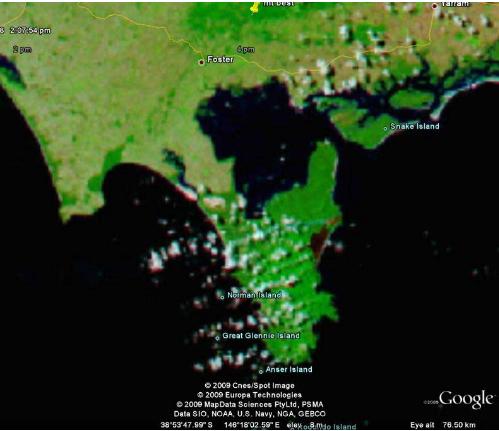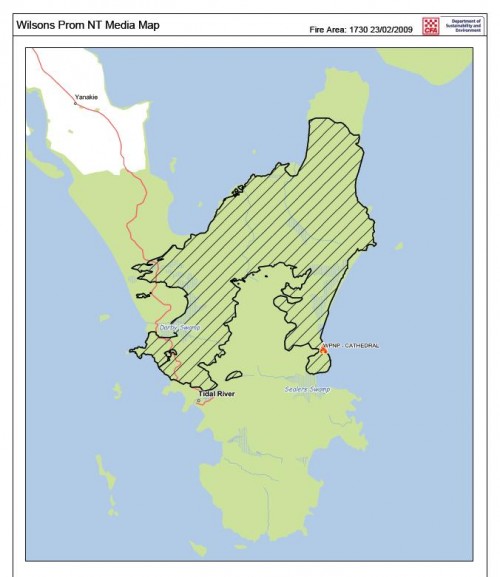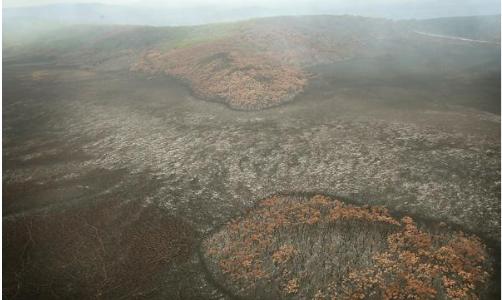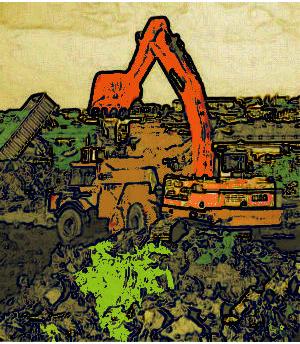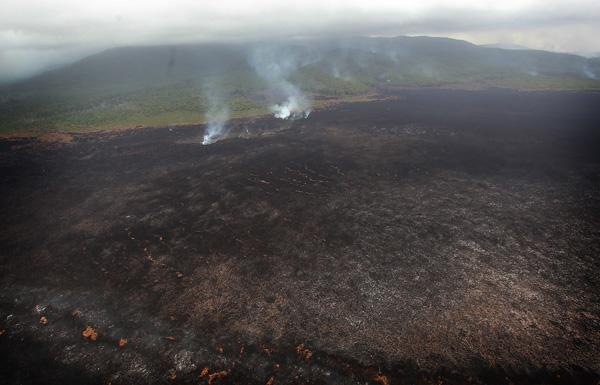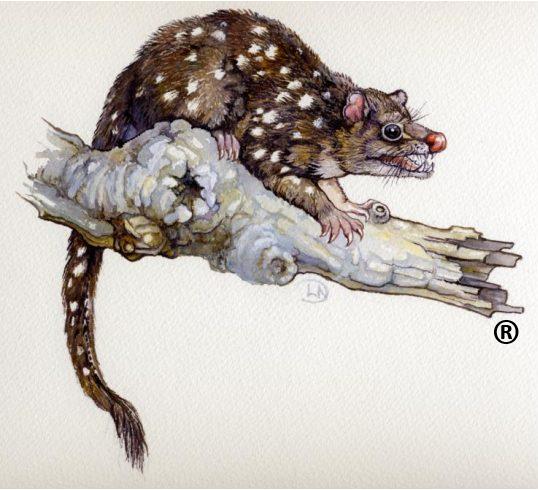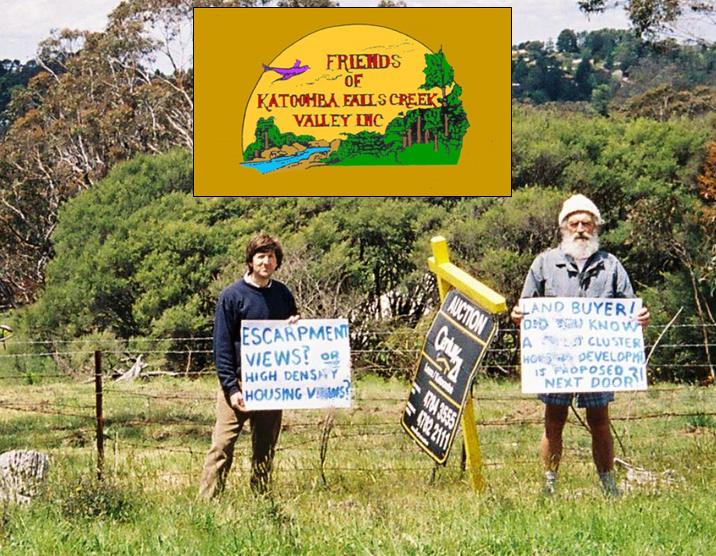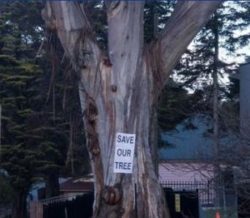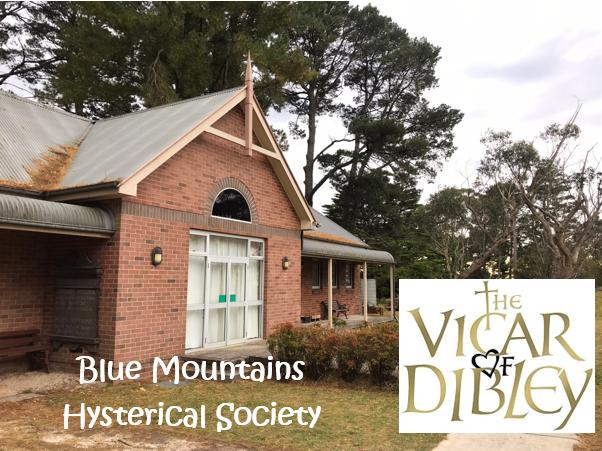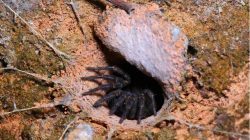The following article by Tigerquoll was initially published on CandoBetter.net on 20090312
.
During Victoria’s devastating 2009 bushfires, few will be aware that the Victorian Government’s so-called Department of Sustainability and Environment (DSE) allowed nearly all of the natural ecology of the northern half of Wilsons Promontory National Park (‘The Prom’) to burn at will.
Indeed ‘DSE’ has long been colloquially denigrated by rural Victorians as an acronym for ‘Department of Sparks and Embers‘ for such very reason.

Out of control, lack of resources?, or has The Prom Fire (now having destroyed 24,800 hectares of native habitat) in fact been deliberately left to burn?
DSE in collaboration with the Victorian Government’s CFA (Country Fire Authority) have protected private property at Tidal River and Yanakie.
Perhaps ‘CFA’ has similarly become an acronym for…’Culpable Fire Arsonists‘.
- What really has been going on at The Prom behind the fire barricade out of public view?
- Why was the small fire north of Sealers Cove not extinguished on Friday 13th February 2009, when it was nearly out?
- Why after three weeks with mild weather conditions has this wildfire not been put out?
- Why, ahead of more forecast hot winds, has DSE risked this fire continuing?
…government silence is deafening!
.
Is this really an opportunistic prescribed burn…thanks to lightning? Is it in fact because the DSE doesn’t want the fire out..not until its prescribed burn area is burnt?
A DSE operational fire planning document sourced from the Yarram Fire Distict (which includes The Prom) shows that most of The Prom that has now been burnt is in fact part of DSE’s ‘Planned Burns’ for 2009, 2010 and 2011 anyway. The DSE map (click link below) shows no fires history for the northern half of The Prom.
…’so quick let’s burn it, lest it burns!’
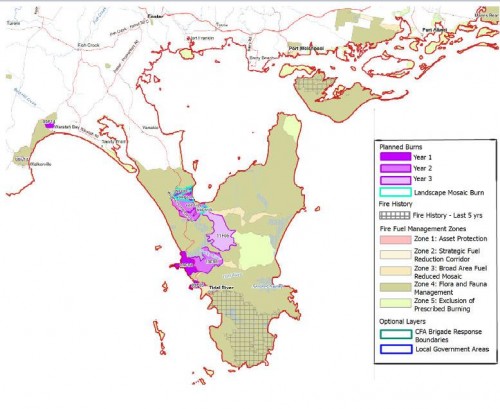 [CLICK MAP TO ENLARGE]
[CLICK MAP TO ENLARGE]
Yarram Fire Operations Plan 2008/09 – 2010/11 – showing most of Wilsons Promontory colour coded for planned burning.
© Firemap Tue 14th Oct 2008
.
On this DSE planned burn map of The Prom, no areas are off limits from burning save the few villages and small pockets of private property and what the DSE has mapped as Zone 5 ‘Exclusion of Prescribed Burning’.
All other natural bushland areas of The Prom have been targeted by DSE for burning anyway.
This prescribed burning culture labels all bush hazardous ‘fuel’ and a demonic threat. Instead of putting out the fires in bushland they let the bush burn and all the native animals burn alive in the process.
They brag… ‘we save houses, the bush will grow back so what’s the problem?’
The ‘Department for Sparks and Embers’ is living up to its name.
But who’s responsible for the fauna?

.
.
Comments:
.
Is DSE helping developers get at the Prom??
March 4th, 2009 by ‘Prudence C’:
.
I would go further.
Are the developers that are driving this country to ruin actually after the Prom???
Does DSE, which is removing all rights from citizens to object to development, purposefully causing extinctions through burning so that soon it will be able to say, “Oh, all that land is degraded, it may as well be developed”?
I would put NOTHING past this government.
It should not be allowed to get away with what it has already done to Wilson’s PRom.
DSE is really just an old wood-feller’s hang-out. It should be closed down and something that cares about animals put in its place.
.
.
Vic DSE’s handling of Wilson’s Promontory fire defended
March 22nd, 2009 by ‘callum’:
.
You people have no idea what DSE try to do to get that fire out as so as they could! Where it was burn is very thick bushland and very high country you couldn’t get fire trucks in there. they tried droppin strike teams in but with the water bomber not make making a difference there was no point keep it going to without the water bomber the strike teams weren’t allow to stay on the fire front. so they had to wait until the fire got to where they could attack it. so before you start having a go at dse get the facts right. because the DSE did a great of protecting as much of the prom as they could. if they wanted the whole thing to burn they would have sat at the enterance to the prom and watched it burn! (Abuse removed – JS (Can DoBetter.net editor))
.
.
DSE’s prom effort was opportunistic prescribed burning
March 25th, 2009 by Tigerquoll:
.
Callum (above comment) claims the remote fire on Wilsons Promontory could not be put out.
The evidence is that on 13th March 2009 it was almost out due to rain, according to a timely online NASA satellite photograph. A fire truck approach for remote ignitions is obviously not going to work. It’s a bit like trying to connect up to the nearest fire hydrant in the bush. Such an urban fire fighting approach to remote ignitions is clearly flawed. The fact is that the Victorian government grossly under-resources remote fire fighting. This results in stuff all effective ignition detection (delegated volunteers rely on a goodwilled member of the public to ring 000 before fire trucks roll) and stuff all in effective response and suppression – if the truck hoses can’t reach the remote ignition, let’s sit and wait -it’s only bush. The resourcing of serious standby airborne Canadairs and Aircranes is beyond Brumby’s mindset, the let the bush burn culture is stuffed.
Questions to Callum, assuming he is duly informed about the actual fire response operation:
- Why did the “water bomber” not make making a difference to controlling the fire – especially on or before the 13th, before the wind speed picked up?
- Why were not extra water bombers including dedicated aircranes deployed immediately?
- Why weren’t the strike teams allowed to stay on the fire front and extra strike teams deployed, if necessary from interstate?
- Why did DSE have to wait until the fire got to where they could attack it?
- Why doesn’t DSE have an effective response strategy to remote fires?
(This was one ignition in favourable weaher conditions leading up to the 13th March).
- Was not most of the northern Prom burnt consistent with the 2009-11 fire plan of the Yarram Fire District?
- A lot of Victoria has thick bushland and very high country, moreso than the comparatively accessible (by air) coastal landscape of The Prom.
- How is DSE measured on its performance – by the minimal amount of area burnt due to fast and effective suppression? If so it has failed Victorians and their forests big time.
.
If DSE can be demonstrated to not have used every resource possible to quell this fire, the the presumption of opportunistic prscribed burning remains and the organisation deserves to be disbanded.
What’s the bet that Brumby’s Royal Commission ignores the Prom and the plight of ground dwelling fauna?
.
.
A large number of native
April 14th, 2009 by ‘Anonymous’:
.
A large number of native plant species in the Prom (and indeed, across Victoria) require fire to persist. There are however many species that will not survive fire (including animals obviously). The problem is that the species that require fire to disperse their seeds, sprout from epicormic shoots, flower like the native grass tree and for dormant seeds in the soil to be stimulated by fire do not survive the type of fire that spread through the Prom on the 13th March. Controlled fires are only lit when they can be managed and are either hot quick burns or slow not so hot burns. There are many ecologists that would give you this same view point. If you are correct and the DSE allowed this fire to burn then they should be held accountable but I seriously doubt that this was their conscious decision. They would be fully aware that many species would be lost.
While I understand your arguements, I think that you are being unreasonably harsh. The Prom fires were not immediately endangering property or person, of course the government would deploy all efforts in areas such as Healesville and Marysville where this was the danger before protecting native bushland. I think that this fire season was a unique situation and had there not been immediate danger to human life then I’m sure the management of the Prom fires would have been handled differently.
.
.
Let the DSE publicly justify its actions
April 14th, 2009 by Tigerquoll:
.
The desperately dependent myth that a few native plants require fire to survive is perpetuated to the extent that encourages DSE and CFA to incinerate all Victoria within cooee of a Eucalypt. Latching on to epicorimic growth seems to justfy incinerating ground dwelling mammalian habitat. Since when did a Potoroo sprout epicotic paws? DSE, to have any legitimacy beyond myth must provide independent ecological authority of the mandatory requirement for fire for species survival. I challenge the conspicuously ignored fact that any species of Australian fauna require fire to survive. Try lighting fire to you hand or house and see the reaction!
The bushphobic myth is defeatist! Burn the bush in case it burns!
Isn’t the real problem the fact that rural fire authorities are denied the right resources to instantly detect, respond to and suppress remote ignitions. Relying on calls to 000 and sitting in fire trucks is useless in quelling ignitions in rugged and remote country. It must be immensely frustrating to watch a fire grow into an uncontrollable monster because one is denied by government the right resources to deal with it while it is controllable. The considerable investment needed and asked for from government to fight fires while they are controllable, pale compared to the massive tragedy of letting a wildfire rip lives, property, wildlife and heritage to cinders because of government cost savings.
Then what a cheek to hear government thank the charities for picking up the tab and then to target mass burning of the natural environment just because government does not want to fund State of the Art fire fighting – which would instantly detect, respond to and suppress remote ignitions with military precision – saving lives, property, the rural way of life and our wildlife like genuine heroes.
The wildfire problem is likely to get worse with drought and arsonists more prevalent. Waiting for a remote ignition to reach a control line is what they in the 1940s. The risk and cost is too great to rely on a dad’s army response in the 21st Century, unless you have a mantra to destroy the Aussie landscape and create a neo-colonial parkland.
.
.
Your comments appear only half-educated
July 20th, 2009 by ‘artemis’:
.
No offence, but your comments appear only half-educated. A prescribed burn is done in pockets, so that an entire area is not burned off all at one time. This allows animals to continue to flourish in the wider area. This is what is called a “mosaic” effect. Which is why you see the DSE have burnt a little each year over the last few years. This is not “bush phobic” but takes into account the fact that the Australian bush has a complex and necessary relationship with fire for propagation and the DSE tries to work with the bush to encourage it at its natural state as best as possible without injuring or harming the humans that now inhabit it so profusely. In fact you will find that when prescribed burns as the Aboriginals carried them out stopped, certain species of animals that thrived and lived in the edges of them became extinct.
As fire is the natural state of the Australian bush, you will never stop it, the best we can do in our situation, is learn to harmoniously work with the land and manage it. If you understand it from this angle you will understand that prescribed burns cause no where near the damage to flora, fauna, the environment and humans as the huge deadly wildfires that occur if we don’t prescribe burn.
The DSE and the CFA are both committed to working to save the environment as much as possible, unfortunately too many people see them as the enemy – humans love to have a tangible enemy to attack, even if that means turning on one another when convenient. It will be nice when people finally realize that prescribed burns are much more green than they first understood.
.
.
Prescribed burning is based on unsupported myths
July 21st, 2009 by Tigerquoll:
.
Mosaic prescribed burns immediately around built assets (aka Asset Protection Zones) would seem sustainable. Building approvals only in low bushfire risk areas would seem sustainable. Permitting building construction out of non-combustible and fire retardant material would seem sustainable.
But the ‘bushphobic’ culture has pushed the boundaries and scale well beyond immediate protection of buildings. The scale of bush burning into remote wild parts of Victoria by DSE and the CFA is broadscale and massive and causing local faunal extinctions. Take a look at the DSE site
Take also one small example of a CFA fire district in Victoria. The Yarram Fire District in South Gippsland in its DSE Approved Fire Operations Plan [2008/09 to 2010/11] for 2500 hectares of bush to be deliberately burned.
The issue of burning the bush is indeed complex, yet the ecological complexity and impact is not understood or appreciated by DSE or CFA. How do you know that “DSE activities “allows animals to continue to flourish in the wider area”
Where are your statistics Artemis? Why are not independent zoologists with experts in Australia’s native fauna providing independent public reports supporting each Proposed Plan Burn by the DSE and CFA across Victoria? Too embarrassing, especially when these get out of control 1 in every 2? It is because the DSE and CFA have cumulatively destroyed more native habitat that any other threatened process? Look at Wilsons Promontory in 2009 and 2005! Default prescribed burning from the convenience of lightning. No building threatened so let the bastard – saves us the work anyway on the Fire Plan and we can always argue the old “it was burning in inaccessible country” excuse – works every time, guaranteed!
Controlled limited ‘mosaic’ burning that excludes flora species and ecological systems vulnerable or intolerant to fire is the PR spin. But on the ground prescribed burning is not an exact science. It is not undertaken scientifically nor supervised scientifically or able to be independently verified as compliant. The DSE or CFA have no independent public watchdog. They are a law under themselves and they know it. Weekend warriors end up torching most of the prescribed burns – “this’ll do!” If it gets out of control, we’ll deal with it but actually it will save us bother next time and minimise the fire risk next summer.
The Aboriginal firestick burning is another excuse used to justify deliberate arson of wild landscapes remote from buildings is another old school fire management myth, lacking scientific merit. Since when did ancient Aborigines drop aerial incendiaries over vast inaccessible areas every year?
The Armageddon myth is another bushphobic alarmist excuse to try to justify slashing and burning as much bush as possible ‘before it burns’ every seven years or so. This way no bush is ever allowed to live beyond seven years. The main reason huge deadly wildfires occur is because the fire authorities take too long to detect the ignitions take too long to respond, don’t have the right tools to suppress remote ignitions fast and effectively.
The DSE and the CFA are both committed to perpetuating the status quo, let alone give a toss about the natural environment.
.
.
Logging is drying our forests!
July 20th, 2009 by ‘Anonymous’:…
.
By “managing” our forests and clearing native vegetation, along with the conditions of drought and climate change, we are actually making them drier and less dense, and thus adding to the risk of mega-fires.
While our State government continues to permit the logging and thinning of our native forests and water catchment areas, the public can do little to prevent further mega fires.
The dry conditions means that trees suffer and compete for water. They lose their leaves, or die, thus exacerbating the dry undergrowth problem. Instead of moisture, forests continue to become more vulnerable. It is then a cycle downwards to damaged ecosystems, and thus more fire dangers.
.
.
Broadscale frequent prescribed burning is a threatening process
July 21st, 2009 by Tigerquoll:
.
Indeed, logging, thinning and frequent burning (forest practices) over Australia’s 220 year colonial history have and continue to destroy the integrity of our native forests and force our native fauna closer to extinction. Colonial ‘clearing’ for agriculture and building materials destroyed most of south eastern Australia’s natural landscape. Neo-colonial practices including unchecked urban invasion and prescribed burning continue to do destroy what’s left.
Australia’s original natural landscape is characterised by varied topography and varied mosaics of different vegetation types. Broad scale destruction of native vegetation across south eastern Australia has reduced the remnant forest and heath habitat into fragmented and isolated islands. Many specific habitat types are now threatened and endangered as a consequence. Wet schelophyll has being transformed into dry schlerophyll. Note the fire resistent species that return after a fire – Acacias (wattles), tea tree and Eucalypts. These then dominate the new growth and when the next fire occurs they burn more intensely and exacerbate the wildfire. Frequent prescribed burning makes our remnant forests more susceptible to wildfire. Frequent prescribed burning and uncontrolled broadscale bushfire are by area and impact are responsible for the loss of our remaining biodiversity and ecological values across south eastern Australia.
This is even though prescribed burning has been found not to prevent ember attack – the main cause of wildfire spread in extreme bushfire weather conditions! Frequent broadacre burning policies have limited effectiveness at mitigating wildfire risk (its intended aim). The previous “NSW Rural Fire Service Commissioner, Phil Koperberg, echoed similar sentiments when faced with criticism after the 2002 fires: ‘Unless you’re going to keep all of New South Wales hazard reduced to a point where there is no fuel on the ground…we’re going to have fires’ (McKey 2002).” SOURCE: http://www.australianreview.net/digest/2003/02/brandes.html
ACB Submission to the Teague Commission on Victoria’s 2009 Bushfires
The Australian Centre for Biodiversity (ACB) at Monash University has made a submission to Teague Commission on Victoria’s 2009 Bushfires, and addresses the fundamental question: ‘Can fire and land management practices and policies be modified to minimise the future risk of similarly catastrophic bushfires without compromising Victoria’s native ecosystems and the biodiversity that they support?’
ACB in its submission, has offered the following warnings of how broadscale frequent burning threatens our native forests:
“Natural fire is a complex physical process that affects organisms, communities, and landscapes in various ways. The spatial and temporal variability of these impacts depends on the intensity and frequency of fires in an area, that is, the fire regime.”
“Inevitably, after a major bushfire, there are calls to increase the amount and frequency of fuel reduction burns. However, increasing the rate of fuel-reduction burns is, in effect, changing the fire regime in an ecosystem and may have substantial ecological implications.
“The application of fuel-reduction burning to mitigate fire risk, therefore, needs to be critically questioned on two fronts.
First, will increasing the frequency and amount of prescribed burning reduce fire risks at the landscape scale?
Second, how will changing the fire regime through increased fuel-reduction burning impact on native ecosystems? Will increasing fuel-reduction burning lower fire risks?
“Theoretical studies have also shown that fuel-reduction burning at the landscape scale can reduce the risk of large, catastrophic fires. However, these studies make important assumptions about the other point of the fire triangle: climate. Under most reasonable climatic conditions, fuel reduction burns done sufficiently frequently may reduce the risk of large fires. However, under extreme climatic conditions, such as those that preceded Black Saturday, this may not hold. As of Friday, 6 February 2009, approximately one-third of Victoria’s public lands had been subjected to fuel-reduction burns since 2003; that is, ~5% of public lands were subjected to fuel-reduction burns each year. This was the target set in an earlier Parliamentary Enquiry and clearly did not prevent the Black Saturday fires. Modeling studies suggest that the amount of fuel reduction burns would need to be doubled, at least, to have any potential for avoiding similarly catastrophic fires if conditions of such extreme fire danger re-occur in the future.”
“Increasing fuel-reduction burning to proposed levels (10-15% of public lands per year) would reduce habitat diversity by homogenizing the regional fire regime. The diversity of habitats and their mosaic distribution across the Victorian landscape is a critical component in maintaining local and regional biodiversity. The interdigitation of sites differing in their susceptibility to fire provides temporary refuges for animals that can move away from fires and later recolonise their original sites. More frequent fuel-reduction burning will change the structure and composition of the understorey vegetation. While many animals may be better able to survive the low-intensity fuelreduction, the resultant vegetation may be poor-quality habitat.”
“Applying a single prescribed burning policy to Victoria’s public lands will disadvantage a large proportion of the native biodiversity and reduce local and regional habitat diversity. Shifting
toward more homogeneous landscapes through increased prescribed burning will be detrimental to the long-term conservation of biodiversity in Victoria.”
“Increased prescribed burning may reduce fire risks in some years, but is unlikely to have any effect in those years with extreme climatic conditions similar to those of 2009.”
“A uniform and widespread increase in fuel-reduction burning across Victoria’s public lands will likely have negative long-term impacts on the native flora and fauna.”
ACB’s recommendation:
“We recommend that the State government consider a more nuanced policy that acknowledges the spatial complexity of Victoria’s landscapes and the values associated with them. We recommend that increased prescribed burning be focused in high-risk areas directly surrounding towns to minimize threats to people and property. However, for more remote, unpopulated areas, where the primary values are biodiversity and timber, we believe that fire management plans should be based on the best available science, that they should be consistent with the appropriate historical fire regimes, and that they provide an integrated, long-term vision for Victoria’s natural heritage.”
SOURCE: www.biolsci.monash.edu.au/research/acb/docs/teague-commission.pdf
.
.
Conservation biologist disputes that burn-offs harm ecology
May 1st, 2010 by ‘Anonymous’:
[Subject was: Myth? are you serious? – JS]
Myth? Are you serious? Perhaps you should learn the basics of Australian ecology and the critical role of fire for the majority of Australian flora before you go and bad mouth the authorities who do their best to save your homes. I know there is a lot of debate but you can’t base your arguments from what you hear in the media. I am a studying ecologist and conservation biologist, you need to hear the real truth from the experts – not the damn reporter who gets paid to write what ever will sell papers. without fire the prom will disintegrate. sure you feel sorry for the cute and fluffy animals that may be caught in these fires but if you had any decent knowledge you would know that our native wildlife have evolved with fire and they wont all perish, They have adapted the most interesting adaptations and behaviours that allow them to escape or rebuild their populations at amazing rates after fire. For most, if not all, of the Australian biota, fire is beneficial!
.
.
Feeling “sorry” for the “cute and fluffy animals” is sickening
May 1st, 2010 by Milly:
.
Feeling “sorry” for the “cute and fluffy animals” is sickeningly patronising and degrades our wonderful and diverse wildlife. How could you be studying ecology and not have some appreciation of our stunning and awesome range of unique species in Australia, and their tragic decline? It is ecologist like you who, without peer support and without having a shred of compassion or empathy with living creatures, become paid to “manage’ wildlife with fire-arms! (Such as Canberra’s kangaroo managers[1]).
There was no capacity for fires to be as large or as intense as what we are seeing today. Land clearing and logging have made soils and undergrowth drier and more open for oxygen, increasing fire risks.
Since European settlement, the landscape has changed dramatically. Trying to replicate Aboriginal fire practices in southern Australia would unfortunately now be a risky experiment. European land management has seemingly done everything necessary to turn the Australian landscape into a moonscape. The argument that we should engage in widespread and regular burning of the forest because that’s what Aboriginal people did for years is, as the 2003 bushfire inquiry put it, “a highly attractive philosophy”. However, we simply do not know enough about traditional burning in southern Australia to be able to re-create an Aboriginal burning regime.
Firstly, in most parts of Australia, we don’t know how Aboriginal people used fire. Secondly, since European occupation, ecosystems have been changed so much that Aboriginal burning would no longer be possible. The native animals that ate and buried plant material have largely disappeared, so there is a lot more flammable vegetation in the bush now than there was before Europeans arrived.
Many wildlife have traits that enable them to survive fire. Often they are adapted to specific fire regimes, determined by intensity, frequency, season and scale. However, inappropriate fire regimes may have undesirable consequences including declines or local extinctions of biodiversity.
Footnotes
See:
^Roo culls lead to tourism boycott calls of 6 Jul 09
^RSPCA rubber-stamp in Majura Kangaroo kills unworthy of this organisation’s aims of 17 Jun 09
^Fitzgibbon’s Massacre – 9th May 2009 of 14 May 09
^It is clear that the government is interested in “managing” wildlife such as kangaroos out of existence of 13 May 09
^ACT Environment Commissioner unqualified to condemn kangaroos of 16 Apr 09
^Majura kangaroo killings: Another Belconnen Cover-Up? of 15 Apr 09.
.
.
Bushfire authorities: underfunded dad’s armies playing with fire
May 2nd, 2010 by Tigerquoll:
.
In response to comment above: “Authorities who do their best to save your homes.”
What is the latest excuse for these ‘bushfire authorities’ failing to save homes in Victorian in February 2009?
The simplistic strategy applied to rural fire fighting across Australia is to burn the bush before it burns. Get rid of the bush (fuel), with no thought to the impact to wildlife of burning and to the sterile ground cover landscape such practice leaves.
Bushfore authorities do this to hide the blatant fact that they are incompetent at suppression fires before they cause serious damage. By the time the detect the fire and get to it, it is too late.
As for bush being a natural asset would even occur to them. Only houses matter because they are the only thing they know how to defend, and they can’t even get that right. It is not the volunteers at fault, it is the Government dependent on volunteers and token funding that is at fault. Try taking that approach with the police?
Brumby and Rudd were ultimately responsible for the 17 Victorian deaths. They simply avoid funding a serious emergency force to prepare for and to mitigate such natural disasters and bush arson. A pre-1939 Black Saturday approach to bushfire fighting is gross public negligence. I hope those affected take up a class action and sue the pants of the government authorities. Only then will the billions needed to to do a proper fire fighting job be invested by Australian governments rather than paid out after the tragedy and rely on volunteer charities.
Fire is beneficial is only beneficial for those with a penchant for lighting fires. If it isn’t doing too little too late to put wild fires out, the rest of the year is spent lighting new ones. If there is no fire there is nothing to do, so we better light a fire and look busy. Drip torches and airborn incendiary – burn the lot seem to be the Neanderthal thinking!
Didn’t learn much from Ash Wednesday 1983 or the hundreds of fires since. Bloodly uselfess lot these dad’s army. No I don’t expect a fire truck to turn up outside my house if there is a fire. I know here I stand and it’s every man for himself.
‘Fire ecology’ what a farcical term for State-sanctioned arson. Well name one species of flora or fauna made extinct due to lack of fire? – there’s a good one for your so called ‘ecology’ course.
.
– end of article –



